At the beginning of Beethoven’s Opus 7 Piano Sonata, why this particular chord? Why this register, this particular arrangement of voices?
In other piano music by Beethoven, there are long melodic notes which are excited or made to vibrate longer (or differently) by reiterated lower notes.
In this passage from the first movement of Opus 28, the long, high right-hand melody notes (not particularly sustaining on an early-19th-century piano) are made to resonate more as the pitch one octave below is played and repeated. In each case, the lower note provokes the high melody note to vibrate because the higher long-note is the first partial (overtone) above the repeated lower-pitch.
Playing a simplification, you may more clearly hear the effect: 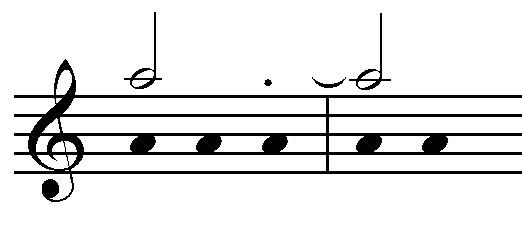
You might also try playing the lower notes while silently depressing the long upper-note. This helps me hear what happens at the beginning of Opus 7. (In the first measure of Opus 7, try silently depressing the right-hand notes while playing only the left-hand part.)
In the beginning measure of Beethoven’s Opus 7 Sonata, mulitple upper-partial relationships give the sustained melody-chord an enhanced, evolving resonance. The sustained treble-staff E-flat is the third partial of the lowest E-flat played in the bass:
That same long E-flat is also the first partial of the repeated E-flat played by the left hand:
The long right-hand B-flat is the second partial of the left-hand’s lower E-flat:
The sustained right-hand G is (approximately) the fourth partial of the lower left-hand E-flat:
Within the left-hand part, the upper E-flat is the first partial of the lower E-flat. If the dampers are raised, the lowest E-flat string resonates more (and differently) as a result of the repeating of the higher note.
We think of spectral music as a late-20th-century practice, the domain of Gérard Grisey or Tristan Murail. Well, here’s precedent.

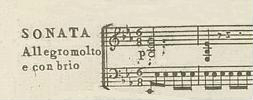

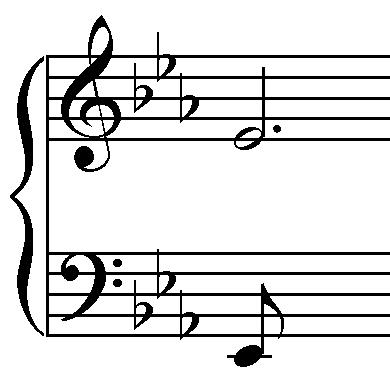
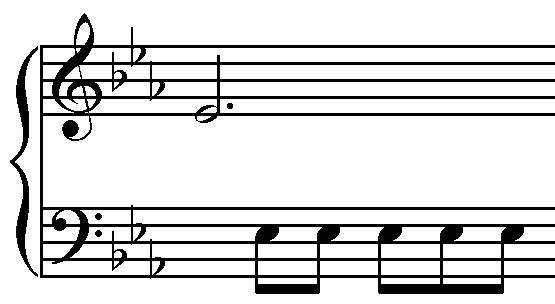
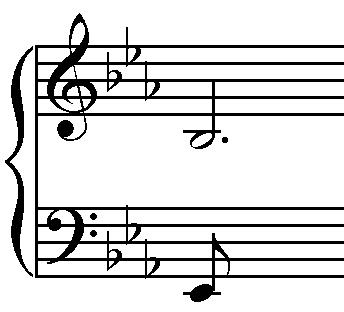
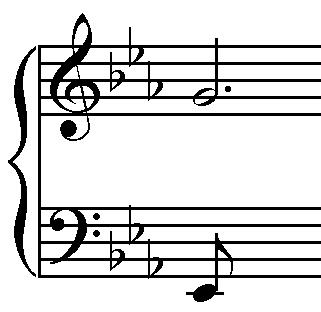
Bruce, this is a very interesting post. Spectral music has always been a study of particular interest to me. I think you bring up a very valid observation; one that really makes one ponder Beethoven’s Opus 7 Piano Sonata. I am going to look into this a little bit further.
Dr. Brubaker,
I am curious as to whether you think Beethoven was aware of this scientifically, and intentionally wrote it for that reason, or if he felt it innately because of his failing hearing? I have not read much about this, but it certainly is true, that it does create an “enhanced, evolving resonance” because of the sympathetic overtones.
This also reminds me of a similar resonating experience when listening to Bach’s solo concertos, where you can hear the melody and harmony evolve out of a series of linear pitches.
Thank you for your interesting post.
It’s not possible to know, Marian. I can speculate that Beethoven might have perceived these effects, even though he may not have been aware of the physics involved.
well, that is an exciting thought.:)
I’m certain Beethoven knew what he was doing and intended it to sound like that